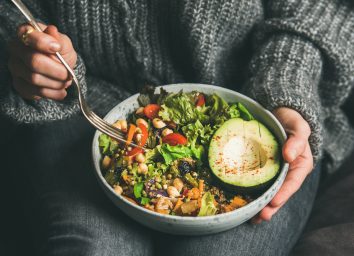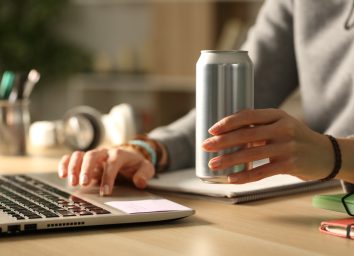Drinking Habits You Must Follow If High Blood Pressure Runs In Your Family
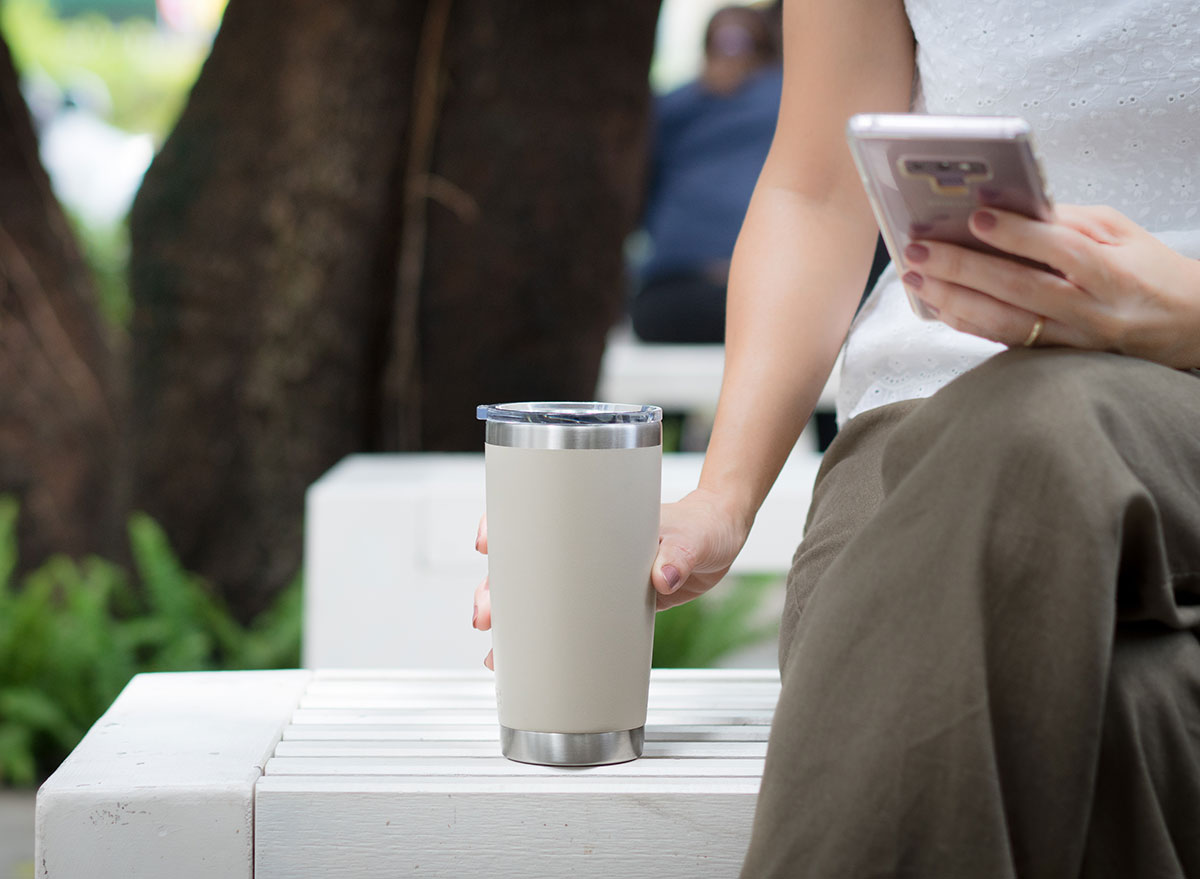
According to the Centers for Disease Control and Prevention (CDC), nearly half (47%) of the adults living in the United States have hypertension, more commonly known as high blood pressure. Chances are you know someone who has high blood pressure, and that person may even be a family member.
Genes likely play a role in blood pressure and other forms of heart disease, but there are many lifestyle factors that can impact your risk of developing high blood pressure, too. Staying active, maintaining a healthy weight, and avoiding nicotine are some of the habits that can reduce your risk of hypertension, but did you know what you drink can have a big impact as well?
Here are the drinking habits you must follow if high blood pressure runs in your family. Read on, and for more on how to eat healthy, don't miss The #1 Best Juice to Drink Every Day, Says Science.
Limit alcohol
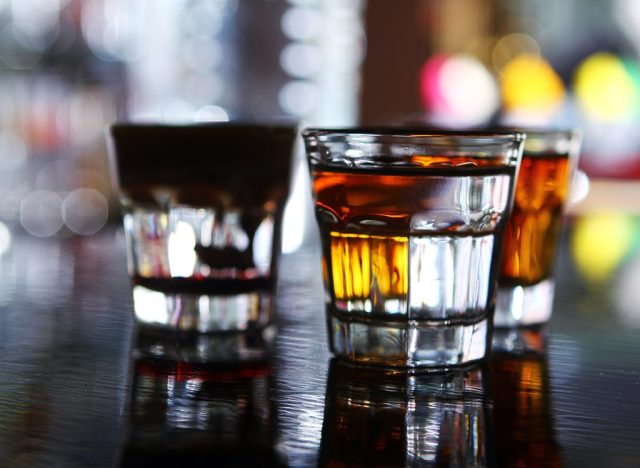
Even for healthy individuals without a high blood pressure diagnosis, alcohol can raise your blood pressure. While consuming alcohol may initially lower your blood pressure in the hours following a drink, one study found an increase in systolic and diastolic pressure (the top and bottom numbers in your blood pressure reading) 13 hours after having alcohol.
Drink This! Tip: Experts recommend drinking alcohol in moderation, which is one drink per day for women and two drinks a day for men. We may have varying ideas of what constitutes one drink, but here is the actual definition: 12 ounces of beer, 5 ounces of wine, and 1.5 ounces of distilled spirit are each defined as one drink. Each of these equivalents contains about 14 grams of pure alcohol, and research indicates as little as 10 grams of alcohol (slightly less than one drink) can raise blood pressure.
Choose decaf
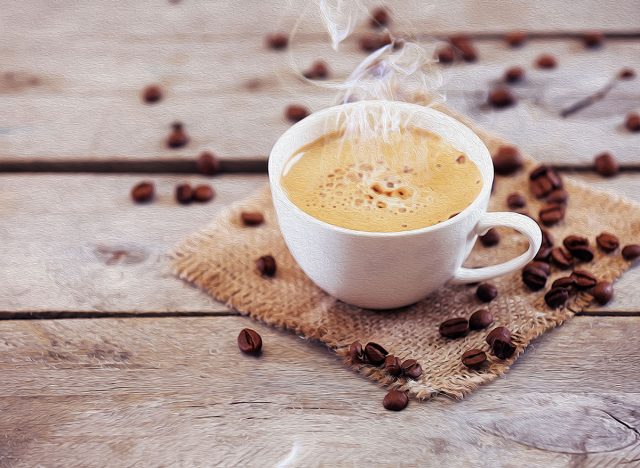
Many of us enjoy coffee as part of our morning routine and, let's face it, we enjoy the caffeine boost. Similar to alcohol, caffeine can temporarily increase your blood pressure; however, while alcohol has a delayed effect, caffeine can raise blood pressure within a couple of hours of having caffeine.
Because everyone has a different tolerance to caffeine, its impact on blood pressure can vary from person to person. To see if caffeine impacts your blood pressure, try testing your blood pressure prior to having a cup of coffee and again 30 minutes to 2 hours after. If your blood pressure increases by 5 to 10 points, you may be sensitive to caffeine and may consider reducing your intake.
Drink This! Tip: Remember, caffeine is found in many beverages, like soda, energy drinks, pre-workout supplements, and some tea, so take all of your beverages into consideration when evaluating your caffeine consumption, and speak with your doctor if you aren't sure if you need to reduce your intake of caffeine.
Cut out sugary drinks
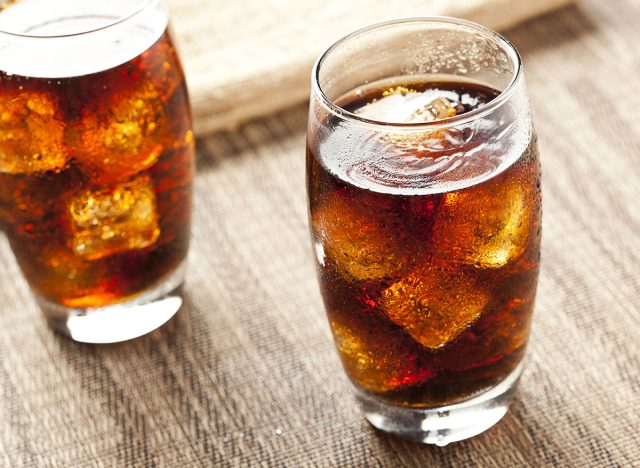
Soda, juice, sweetened coffee drinks, and sweet tea are just some of the beverages that contribute to sugar intake. Hypertension is a significant risk factor for heart disease, and research indicates salt and added sugar in food are likely associated with hypertension. While the majority of salt in our diet comes from food sources, sugar is found in a wide variety of foods and beverages.
Drink This! Tip: The American Heart Association recommends men consume no more than 36 grams of added sugar per day, while women should limit to 25 grams. For reference, one 12 ounce can of soda contains about 35 grams of sugar. While reducing your intake of sugary drinks may help reduce blood pressure, it may also help you achieve a healthy weight which can also reduce the risk of developing hypertension.
Stay hydrated
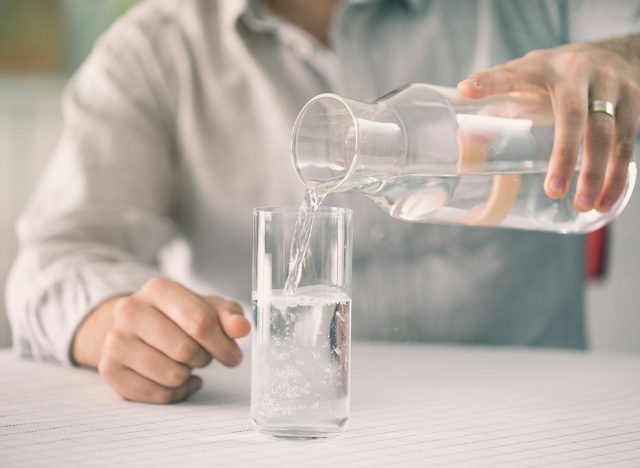
Dehydration can have serious effects on the body, from impacting your blood pressure to damaging your kidneys and potentially leading to a coma or death if left untreated. In some cases, dehydration can cause blood pressure to drop even further; however, in other cases, dehydration has been linked to high blood pressure.
While more research is needed here to understand the scenarios in which dehydration is most likely to increase risk for hypertension, current research suggests blood vessels constrict as dehydration worsens, leading to an increase in blood pressure.
Drink This! Tip: Fluid recommendations will vary person to person based on many factors, including activity, health conditions, and body size; however, The U.S. National Academies of Sciences, Engineering, and Medicine suggests men consume about 15.5 cups of fluids per day, while women should get at least 11.5 cups. In addition to drinking plenty of fluids, try incorporating potassium-rich drinks, like fruit-based smoothies and coconut water into your routine as this electrolyte is thought to help manage blood pressure.
And for more, check out these 6 Best Smoothie Recipes to Target Belly Fat Faster, Say Dietitians.


